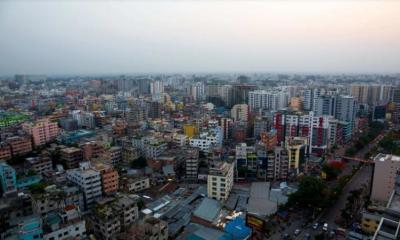Elon Musk did not last long as the world`s richest person. A little more than a year after reaching the top, he has been eclipsed by 73-year-old French billionaire Bernard Arnault, according to analysts at Forbes.
On December 20, they estimated Arnault`s fortune to be $180.2 billion (€169.8 billion), which is nearly $17 billion more than Musk`s.
Arnault is co-founder, chairman and CEO of LVMH Moet Hennessy Louis Vuitton, commonly called LVMH.
His holding company is its largest stockholder and has a majority of voting rights in the publicly traded company.
This is not his first time as the richest person in the world. He briefly attained the position in 2019, 2020, and again in 2021.
If Musk can turn around Twitter quickly, Arnault may not have the title for long. Still, the Frenchman`s accomplishments are the stuff of legend.
A luxury empire
LVMH is a Paris-based conglomerate made up of 75 separate brands of mostly drinks, high-end fashion and cosmetics.
In 2021, it brought in revenues of €64.2 ($68.2 billion) billion, 20% more than in 2019.
Fashion and leather goods accounted for 48% of revenue.
The company -- the largest luxury firm in the world -- has over 175,000 employees and 5,500 stores.
In November 2022, its market value was around €371 billion, according to Statista calculations, making it one of the most valuable companies in the world -- ahead of Mastercard, Chevron and Nestle.
Compared to others on the world`s richest list, Arnault is lowkey and not well-known outside of France.
However, the company`s subsidiaries are anything but lowkey and include many traditional brands like Bulgari, Dior, Fendi, Givenchy and, of course, Louis Vuitton.
They also own retailer Sephora and department stores in Paris.
The company`s oldest brand is winemaker Chateau d`Yquem, which was founded in the late 16th century.
In the US, Arnault gained attention when he bought the famous jeweler Tiffany & Co. in 2019 for nearly $16 billion.
In Germany, he made headlines in early 2021 when he bought a controlling interest in Birkenstock, though it is unclear how the sandal maker can be turned into a luxury brand.
Transforming Louis Vuitton bags into billions
Arnault was born in northern France close to the Belgian border.
After graduating from engineering school, he joined his father`s construction company.
There he focused on real estate development and soon became its president.
In 1984, he took over a bankrupt business that included Christian Dior and Le Bon Marche department store. It was his foray into the luxury market.
In 1987, LVMH was formed by merging Louis Vuitton and Moet Hennessy.
He soon pushed others aside in a hostile takeover and was named chairman of the executive management board in 1989 -- a role he has kept ever since.
After becoming the sole boss, he went on a decades-long, multibillion-euro buying spree vacuuming up one company after another.
Many of the brands had been poorly managed and become outdated, so he brought in modern management and hired young designers to shake things up.
Reportedly called "BA" within the company, Arnault was described as the "Lord of the Logos" by fashion critic Suzy Menkes in a 1999 International Herald Tribune profile.
She also put her finger on the key to his success then and now.
"The aim is to be contemporary, modern, to make the brands speak a universal language," she wrote.
"And Arnault insists that keeping the individuality and uniqueness of each brand is the paramount concern, within a streamlined corporate structure."
This strategy has let each brand keep a degree of independence while becoming more professional.
The company has concentrated on expanding, especially through growth in Asia, its biggest market, followed by the United States and Europe.
Its glossy advertising is aspirational.
They offer less expensive items like belts, hats and anything else with a logo to pull in younger buyers and get them hooked.
Just as important, Arnault believed in the power of the internet. Everything was moving online -- and so would LVMH without losing its exclusive aura.
Now many of the brands have opulent websites and online shops and are no longer afraid to openly display prices.
Planning for the future
Today, LVMH is a family affair. All of Arnault`s five children work with him in different capacities.
Always immaculately dressed, Arnault has a full head of gray hair and is very private.
Colleagues rarely talk about him.
We do know that he is an avid tennis player and enjoys music and collecting art.
For a few years, he owned the Phillips de Pury auction house.
In 2014, the Foundation Louis Vuitton opened in Paris.
The Frank Gehry-designed contemporary art museum is home to Arnault`s collection and is supposed to be turned over to the city one day.
He has also donated millions to charities and for the restoration of Notre Dame cathedral.
The big question now is: What`s next? Which one of his kids will take over the company? Is any one of them predestined to be his successor, or will it be divided among them? And is the company still on the prowl?
Chanel, Armani, Hermes and a number of other brands are still out there.
But Arnault is not alone.
His tactic of gathering together family-run luxury businesses has inspired others like Richemont and Kering to do the same.
They may be competitors, but Arnault created the luxury roadmap.


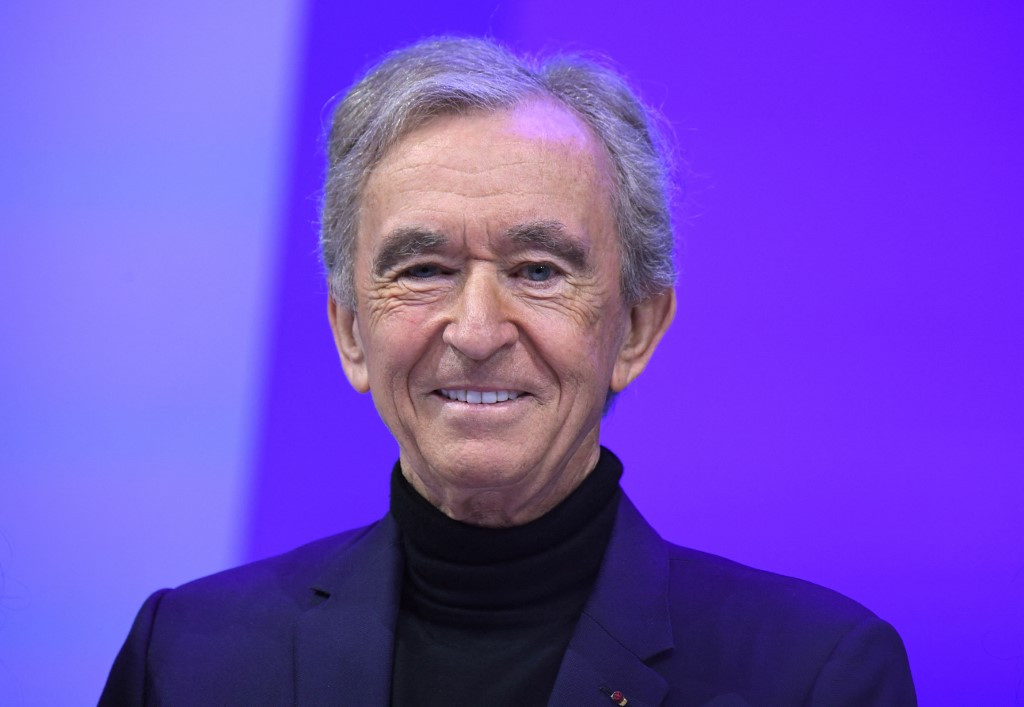

-20240416150710.jpeg)
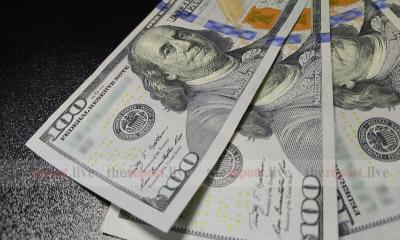
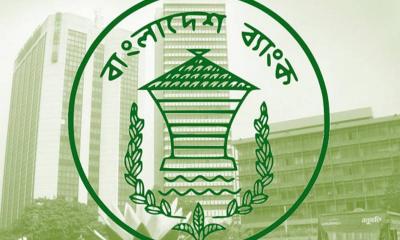

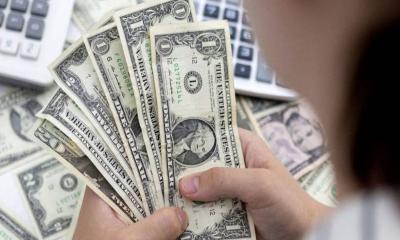




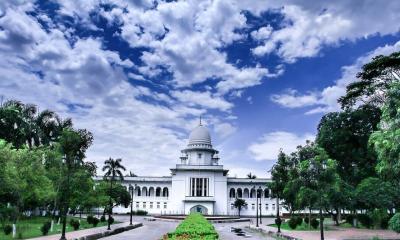
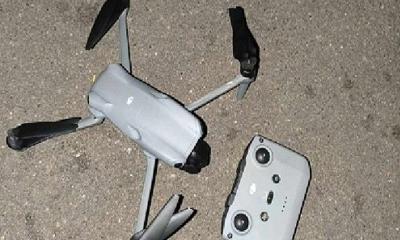
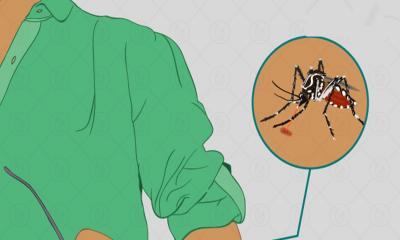

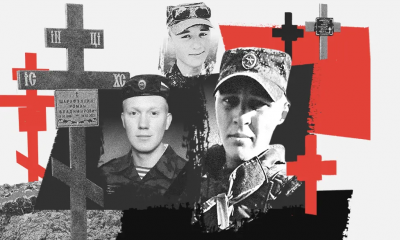



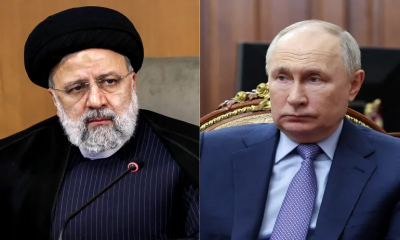

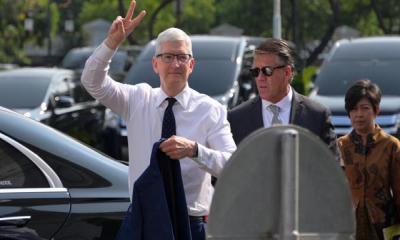





-20240416051011.jpg)







